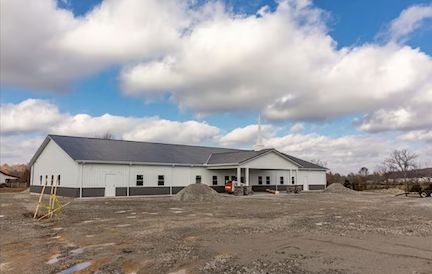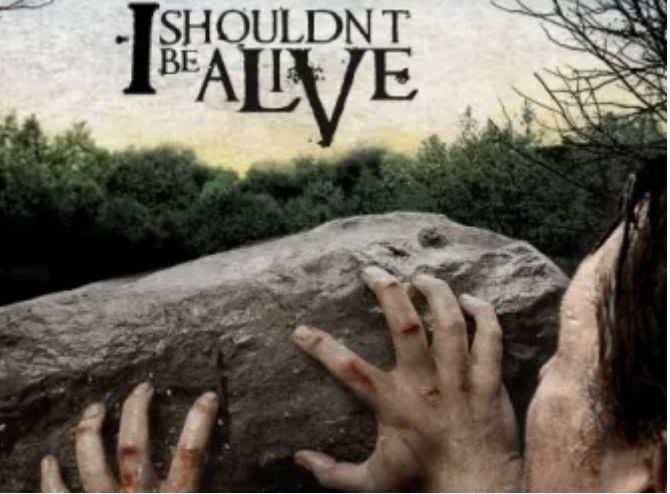Is Jesus home?
Church construction projects are (or at least used to be) a pretty common site, with one springing up on practicually every major road or in every large or small community. As you'd drive by from day to day, you'd watch as the foundation was laid, the walls went up, then the roof, and finally the spire. Not long after, you'd see the cars filling the parking lots and the people coming to inhabit the new edifice.

Several years ago, our church bought a nearby tract of land and began building a much larger sanctuary. In the center of the altar of the new church was a 30-foot-tall obelisk with a cross carved in it. Because of the obelisk's size, it was the first thing installed, and the church had to be built around it. We had to drive by the construction site on the way to the old church.
One day, after the walls were up but the building was not yet completed, my six-year-old daughter looked out the car window at the project. She then turned back and asked, "Has Jesus moved in yet?"
It is a probing question for those who seek forgiveness and grace. Has Jesus moved into your heart yet?
And the corillary akin to it: Does Jesus inhabit the ediface you've so carefully and systematically constructed?
John 6:35–40 (NRSV/ESV-friendly)
“Jesus said to them, ‘I am the bread of life. Whoever comes to me will never be hungry, and whoever believes in me will never be thirsty… This is the will of my Father, that all who see the Son and believe in him may have eternal life, and I will raise them up on the last day.’”
We must ask ourselves, concerning not just our church buildings, but of our own hearts, Does Jesus abide here?
"Here I am! I stand at the door and knock. If anyone hears my voice and opens the door, I will come in and eat with that person, and they with me" (Revelation 3:20, NIV).
Frogsicles
Each winter in Alaska, the common wood frog freezes solid. It quits breathing, and its heart completely stops beating. If you picked one up, it would not move. If you bent one of its legs, it would break off. But when the warm weather returns, its tissues thaw— and it miraculously comes back to life!
The wood frog has even been revived after being frozen for seven months at temperatures dipping as low as three degrees Fahrenheit.
These "frogsicles" can endure multiple freeze-and-thaw cycles in a season because the fluid in their cells contains high levels of glucose, a natural antifreeze also known as cryoprotectant, that lowers the freezing temperature of tissue. Scientists are interested in learning from these frogs in order to increase the shelf life of human organs for transplants by a process known as cryopreservation. Reviving organs after freezing them for a short period would enable them to be shipped around the world and save many more lives.

Did you know that God is an expert at organ transplants?
"I will give you a new heart and put a new spirit within you; I will take the heart of stone out of your flesh and give you a heart of flesh. I will put My Spirit within you and cause you to walk in My statutes, and you will keep My judgments and do them" (Ezekiel 36:26, 27).
I Shouldn't Be Alive
There’s a great tv show called I Shouldn’t Be Alive. Have any of you seen it?
In every episode of the show, a person or group of people end up in some dangerous situation and struggle to survive, whether in a desert, or an ocean, or a jungle, or the like. And in every episode, the situation gets so bleak that the viewer would fully expect the person or group of people to die. There appears to be no hope at all. But then, against all odds, the person is either rescued or they somehow find their way back to civilization, and survive.

There were six whole season of these heart pounding, nail biting survival stories. Here are the synopses of some of the shows just from the first season:
- - Traveling to Idaho to attend a funeral, a family from California becomes trapped in a blizzard; while trekking off to find help, a wrong turn leads them deep into the unforgiving wilderness.
- - A crew of five aboard a luxury yacht sailing from Maine to Florida that sank in a storm, leaving the crew adrift on a lifeboat with no food or water and menaced by sharks.
- - Three adventurers are captured by the Khmer Rouge and must either negotiate their release or take their chances escaping into the jungle.
- - A Hollywood camera crew in a helicopter crash into an active volcano they were filming. Rescue attempts are hampered by lava, toxic gases and bad weather ...
- - A plane crash in the Kalahari Desert leaves survivors without food or water, and two of them try to find help for other passengers who are injured.
Now, we could look at this show and talk about how it’s like our situation before we knew Jesus, how we were lost in our sin and felt like we had no hope, but then Jesus came and rescued us.
But in actuality, this doesn’t even come close to our situation!
In actuality, our situation was much worse, because we weren’t just close to dead — the Bible says that we were already dead in our trespasses and sins!
So Jesus didn’t just rescue us when we were close to not being able to make it on our own. Rather He made us alive when we were already dead!
"As for you, you were dead in your transgressions and sins ... " (Ephesians 2:1, NIV).
"... [E]ven when we were dead in our trespasses, [God] made us alive together with Christ—by grace you have been saved ..." (Ephesians 2:5, ESV).